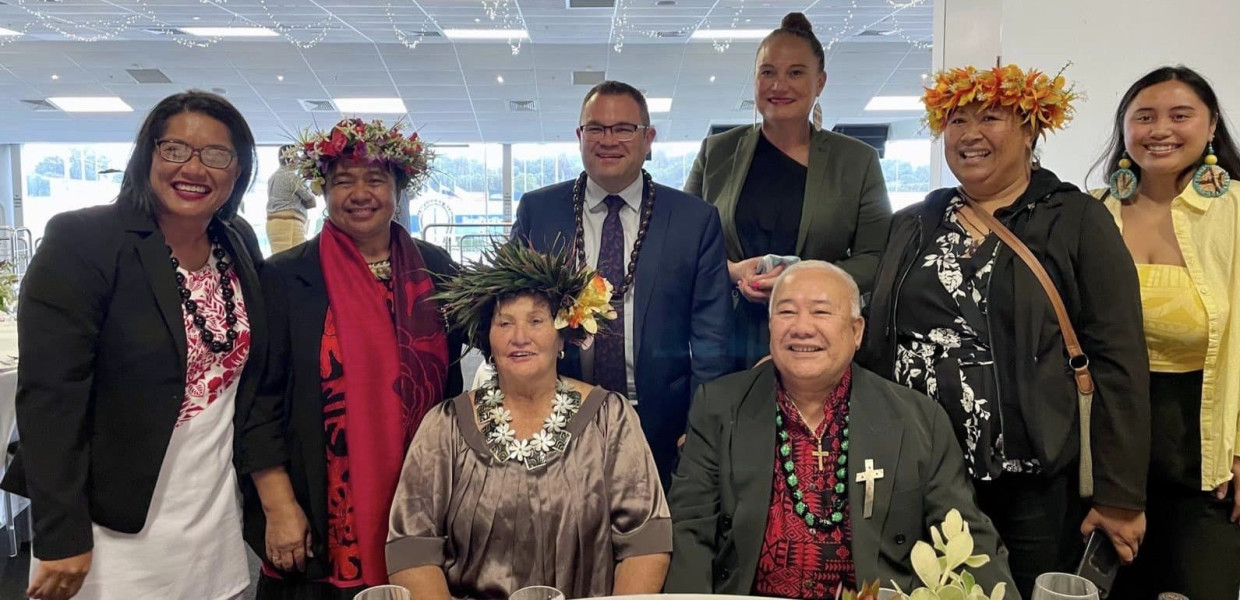Pacific education ministers aim to empower education for Pasifika
Pacific education ministers aim to empower education for Pasifika

(Picture caption: Minister for Pacific Peoples Hon Barbara Edmonds hosts guests at the Conference of Pacific Education Ministers Community Event.)
Pacific education ministers gathered in Tāmaki Makaurau to share their collective knowledge and strategic vision, for the benefit of ākonga across the region.
The inaugural Conference of Pacific Education Ministers (CPEM), staged from March 20-23, was set up to share strategies and discuss education financing, quality, and building resilience, inclusion and equity.
Education Ministers and senior officials from 18 Pacific Island countries and territories as well as Australia took part in the three-day talanoa.
Hosted by New Zealand Education Minister Hon Jan Tinetti, the conference is the first time Pacific education ministers have met face-to-face since the start of the COVID-19 pandemic.
“When Pacific Education Ministers last met in 2021, it was agreed the format of our meetings should change,” Minister Tinetti says.
“This was to allow for more voices to inform our discussions and to have more time to speak with each other about our education priorities.”
At this year’s conference, common issues shared by various Pacific countries included a shortage of teachers, preserving indigenous languages, recovering from the COVID-19 pandemic, and gender equity.
Minister Tinetti took the opportunity to share her perspective on the conference’s theme, Empowering Education for Pacific People, during her plenary speech.
One of the primary objectives of the conference was to define what empowering education means for Pacific people and societies.
“This will be used to guide policy and decision-making to ensure students are equipped with the skills, knowledge, and values to succeed and contribute to their communities, nations, and region.”
Some key decisions from the CPEM include recognition of value Pacific languages, culture and identity has on the wellbeing of learners and its contribution to improved learning outcomes, Minister Tinetti says.
“We agreed targeted resources were needed to prioritise and preserve Pacific languages and cultures.
“We agreed to explore opportunities for better connection between teachers and students across the region, for mutually beneficial learning and development experiences; and we agreed to explore and prioritise responsive and evidence-based training programmes to best prepare our teachers and school leaders.”
Minister Tinetti says conference delegates agreed to prioritise inclusive curricula, which means, embedding relevant issues like indigenous knowledge, climate change and resilience, that support the holistic development of the learner.
She adds the collective needs to do more to strengthen how we collate, analyse and disseminate education data to place at the centre of its efforts; strengthening data sovereignty, ownership and security.
Finally, she says the collective needs to do more to increase investment in early childhood education and how we better embed the important role of families and communities in all stages of the child’s learning and development.
“We recognised that the commitment to empowering education for Pacific peoples calls for higher level affirmation and support.”
As part of the CPEM, Minister for Pacific Peoples Hon Barbara Edmonds hosted the Community Event on March 21.
She says the special occasion reminded her of a Samoan proverb, ‘A logo tai ua logo uta, which translated means, When it is felt towards the sea, it is felt towards the land’.
“This speaks to our collective nature as tagata moana, people of the Pacific.
“When something blesses our aiga, our family here in Aotearoa, the blessings are felt beyond our borders to our wider Pacific family and equally, when there are struggles, they are shared.”
Minister Edmonds says empowering education for Pacific peoples should remain at the core of educators’ work and adds the New Zealand Government’s education initiatives are enabling the forward movement towards equity with Pacific communities in ways that are grounded in Pacific values.
